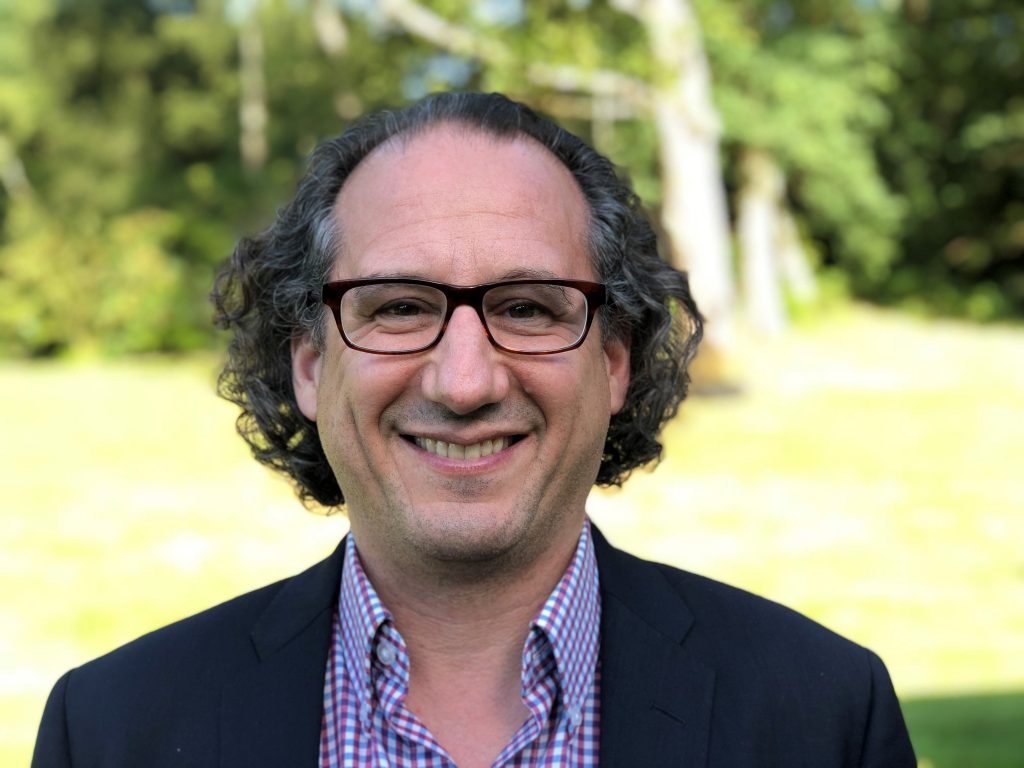Alum Ken Bluestone advocates for the aging in the developing world
December 31st, 2018 | Alumni, Careers, SIT Graduate Institute

Ken Bluestone says studying anthropology made him disillusioned with being an academic. So how did he end up getting a graduate degree?
SIT answered a need that standard academia had not, Ken says. “I was very much looking for something practical, something rooted and grounded in the real world. And crucially, I wanted a program for experienced people, a program where people who already had life experience were able to contribute something.”
Ken, a New Yorker, had already worked in Israel and Paris, but says he lacked the skills to use that knowledge and experience in a management role. “I very much viewed myself as an internationalist, and I had reached a point in my life where I was looking for the next step.”
That brought him to SIT, where he did coursework toward his International Management degree in 1992 and ’93, then worked in Bolivia for a couple of years before returning to do his capstone in 1996. “Many of us were at a time of transition and change and exploration, and we were open to what SIT had to offer, as well as to each other. It was fantastic to go through that experience with others.”
It wasn’t just others he got to know. SIT programs focus on interpersonal behavior via getting to know oneself better. “We learned a lot about interactions, and our effect and impact on others,” Ken says. “It’s not often you get a chance in life to step back and see yourself – and to be given the tools to do something with that knowledge. I find that extremely valuable to this day.”
The majority of the world’s older people live in developing countries and many do not have the privilege of being able to retire.
Ken met his wife, Samantha Wade, at SIT, and the two decided their next move would take them to the UK, where they’ve lived since. Ken worked in a series of policy advocacy jobs, and considers himself a generalist, knowledgeable about a wide range of social justice issues, from drug policy to food security to human rights.
“It was a journey that was not planned,” Ken says. “People often say you should set out your goals, set your timeline and targets – but for a lot of people it doesn’t work that way. It’s much more about being open to opportunity and being aware of oneself and being willing to take risks. What I realized about myself at SIT was that the focus for my energies ought to be policy, influencing and lobbying. I didn’t know where that was going to take me, but that idea was crystallizing.”
About a decade ago, that focus took him into an area he’s worked in ever since: aging, and particularly how aging issues play out in the developing world. “That was a revelation. It’s not something I was expecting. I came to it as a newbie, as someone with little experience of the issues surrounding aging and being older in a developing-country context. I came to realize it’s one of the most obvious yet hidden agendas in international development. Addressing it is something that has the potential for being transformational.”
Ken is now Head of Policy and Influencing at Age International, a UK charity supporting aging programs in Africa, Asia, the Middle East, Eastern Europe and Latin America. He says that dealing with aging in the developing world also means getting at the reality beyond preconceptions.
“There really is no one experience of aging, just as there’s no one definition of who is an older person. Being 50 in Sierra Leone, for instance, means you might be thought of as older. There’s often an assumption that older people are valued and are respected and looked after by their families in many cultures. And they are in places. But even having respect in a society doesn’t mean you get what you need in order to survive.”
Research, he says, points to a worldwide truth that may be surprising: “The majority of the world’s older people live in developing countries and many do not have the privilege of being able to retire.”
Just as there is no universal situation that applies to the elderly, there is no universal solution to meeting their needs. So, a lot of what he does involves simply making them part of the international development conversation. “If you’re talking about development, you have to talk about people at every stage of their life. You have to treat older people equally. Don’t view them as vulnerable and frail, but as people who can contribute.”
As he advocates for the aging, Ken finds the skills he learned at SIT a daily help, even in ways that seem minor at first glance. “It’s going to sound terribly simple, but something I still find extremely effective, even profound in an organizational context, is starting off a meeting by making sure that everyone in the meeting is clear on why they’re there, what they’re trying to achieve, and what we’re going to get out of the meeting.”
It’s one of many examples, he says, of awareness-raising tools from his degree program. “Still, the thing that is most important, the thing that I believe passionately and what motivates me is social change, believing that I personally have an obligation and ability to act within my sphere of influence. One of the gifts of SIT was coming into contact with others who thought the same.”
